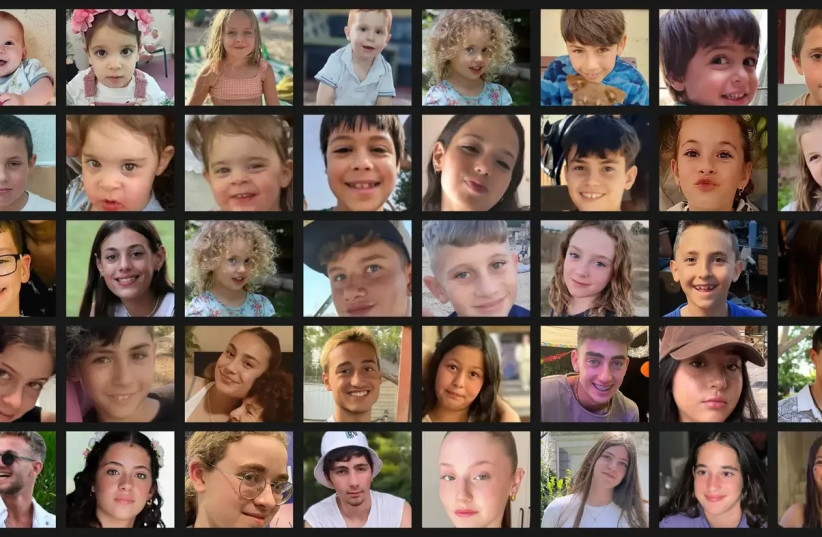My children came home on Friday night.
These were not my biological children – though they were home for Shabbat, too – but those with whom I have forged a unique bond over the past month and a half. The children for whom I have been praying.
Each morning, as I jogged through the streets of Jerusalem, their pictures adorned the sidewalks, becoming a ceremonial backdrop for my daily routine – and the reason for my daily tears.
When I touched down at Ben-Gurion Airport after a short business trip, their silent plea echoed: “Bring Me Home Now.”
As the clock inched toward 4 p.m. on Friday, alongside numerous other Israelis, I found myself fixated on the computer screen. The initial group of 13 hostages, representing the embodiment of our shared prayers, began their odyssey to freedom: progressing from Hamas to the Red Cross to Egypt – and ultimately returning home to Israel.

I couldn’t divert my attention, even knowing my house would be bustling with Friday night dinner guests at any moment.
Finally, the hostages’ faces illuminated the screen, providing a comforting affirmation that they were safe and sound – to the best of our hopes, or at least as much as could be expected.
Arriving in a war zone
Prof. Talia Miron Schatz, a social psychologist at the Ono Academic College and author who studies the medical decisions of patients and doctors, recounted her experience during the onset of the war. Stranded in France, she faced days of delay before securing a flight back to Israel. On the day of her arrival, she found herself hurrying to reach her safe room in Tel Aviv as rockets rained down.
“I was in a war zone, but there was a comfort of being where my heart was,” she said.
“I think the hearts of Israelis are with the kidnapped,” Miron Schatz said. “I know I am not the only person who starts to tear up at the mention of Kfir Bibas or Emilia Aloni.” Five-year-old Emilia was released on Friday; 10-month-old Kfir has yet to be released.
Schatz, like thousands of others, found herself protesting with the kidnapped families.
Israeli solidarity was typical a few years ago until politics bruised our unity.
These hostages are not returning to the Israel that they left on October 7. Instead, they are coming back to a nation grappling with navigating emotional challenges at best and collective post-traumatic stress disorder at worst.
Prof. Salman Zarka, Ziv Medical Center’s director-general, said that one of his employees is still a hostage in Gaza. A nurse lost his brother at the Re’im music festival. Another member of the team’s son was killed on the Lebanon border.
And that is just at one hospital.
We have brothers, sons, and husbands on reserve duty. Around 200,000 Israelis remain displaced from their homes. We have victims of terror and victims of watching the terror – on social media, TV, and in our newspapers.
And we have the hostages and the families of the hostages who we thought would come home but were delayed and who have not come home yet.
On Friday night, Yoni Asher was reunited with his family: his wife Doron and their daughters Aviv, 2, and Raz, 4, who had all been in Hamas captivity. In a video address shortly after their meeting, he said, “While I am overjoyed to have my family back, it’s essential to acknowledge that there are still people in captivity at this very moment whose hearts are shattered. I am committed to doing everything in my power to ensure that every hostage returns home.
“The hostages’ families are not just names on posters or slogans; they are real people,” he said. “They have become my new family.” As they have become mine, and for many of us.
Zarka expressed skepticism about the nation’s capacity to collectively address the trauma stemming from the recent events. He emphasized the necessity of directing efforts toward working with individuals, schools, and the affected families instead.
He said October 7 was a massive event that Israelis cannot fully grasp. But right now, we do not have to.
Today, we need to focus on fighting and winning against Hamas and on bringing the rest of the hostages home.
And this we can do together.
